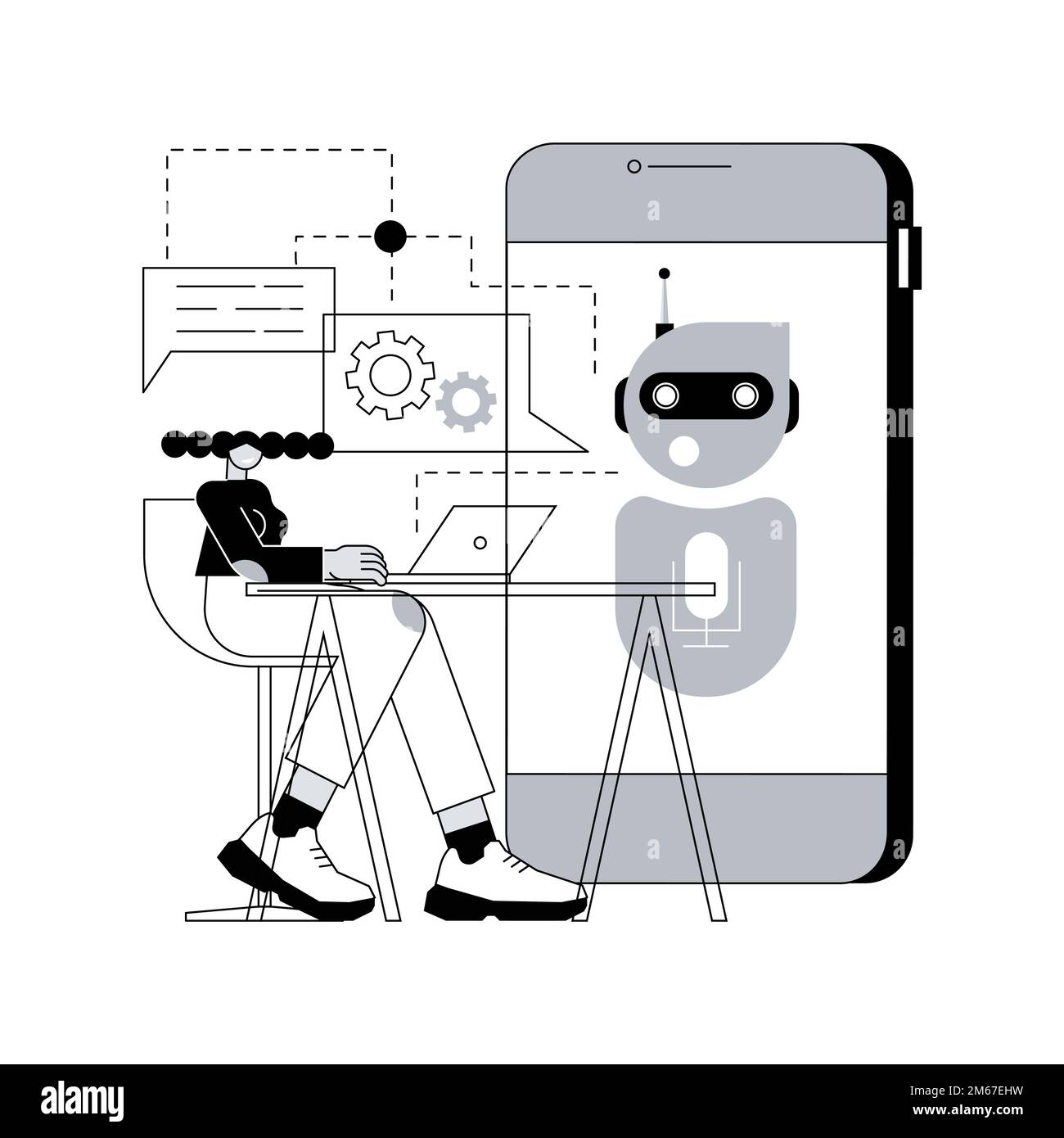 And a key idea in the construction of ChatGPT was to have another step after "passively reading" issues like the online: to have precise humans actively work together with ChatGPT, see what it produces, and in effect give it feedback on "how to be a good AI-powered chatbot". It’s a reasonably typical kind of factor to see in a "precise" state of affairs like this with a neural web (or with machine learning typically). Instead of asking broad queries like "Tell me about history," attempt narrowing down your query by specifying a particular period or event you’re fascinated by learning about. But attempt to offer it rules for an precise "deep" computation that involves many doubtlessly computationally irreducible steps and it just won’t work. But if we want about n phrases of training information to set up these weights, then from what we’ve said above we are able to conclude that we’ll want about n2 computational steps to do the coaching of the community-which is why, with present methods, one finally ends up needing to talk about billion-dollar coaching efforts. But in English it’s much more lifelike to have the ability to "guess" what’s grammatically going to fit on the idea of local decisions of words and other hints.
And a key idea in the construction of ChatGPT was to have another step after "passively reading" issues like the online: to have precise humans actively work together with ChatGPT, see what it produces, and in effect give it feedback on "how to be a good AI-powered chatbot". It’s a reasonably typical kind of factor to see in a "precise" state of affairs like this with a neural web (or with machine learning typically). Instead of asking broad queries like "Tell me about history," attempt narrowing down your query by specifying a particular period or event you’re fascinated by learning about. But attempt to offer it rules for an precise "deep" computation that involves many doubtlessly computationally irreducible steps and it just won’t work. But if we want about n phrases of training information to set up these weights, then from what we’ve said above we are able to conclude that we’ll want about n2 computational steps to do the coaching of the community-which is why, with present methods, one finally ends up needing to talk about billion-dollar coaching efforts. But in English it’s much more lifelike to have the ability to "guess" what’s grammatically going to fit on the idea of local decisions of words and other hints.
 And in the long run we are able to just word that ChatGPT does what it does utilizing a couple hundred billion weights-comparable in number to the whole variety of phrases (or tokens) of training information it’s been given. But at some stage it still seems troublesome to imagine that all the richness of language and the things it will probably talk about can be encapsulated in such a finite system. The fundamental answer, I think, is that language is at a fundamental stage in some way less complicated than it appears. Tell it "shallow" rules of the type "this goes to that", and so forth., and the neural web will most certainly be able to characterize and reproduce these simply wonderful-and indeed what it "already knows" from language will give it an immediate sample to observe. Instead, it appears to be adequate to principally inform ChatGPT something one time-as part of the prompt you give-after which it can successfully make use of what you instructed it when it generates text. Instead, what appears extra probably is that, sure, the weather are already in there, but the specifics are defined by something like a "trajectory between these elements" and that’s what you’re introducing whenever you inform it one thing.
And in the long run we are able to just word that ChatGPT does what it does utilizing a couple hundred billion weights-comparable in number to the whole variety of phrases (or tokens) of training information it’s been given. But at some stage it still seems troublesome to imagine that all the richness of language and the things it will probably talk about can be encapsulated in such a finite system. The fundamental answer, I think, is that language is at a fundamental stage in some way less complicated than it appears. Tell it "shallow" rules of the type "this goes to that", and so forth., and the neural web will most certainly be able to characterize and reproduce these simply wonderful-and indeed what it "already knows" from language will give it an immediate sample to observe. Instead, it appears to be adequate to principally inform ChatGPT something one time-as part of the prompt you give-after which it can successfully make use of what you instructed it when it generates text. Instead, what appears extra probably is that, sure, the weather are already in there, but the specifics are defined by something like a "trajectory between these elements" and that’s what you’re introducing whenever you inform it one thing.
Instead, with Articoolo, you possibly can create new articles, rewrite old articles, generate titles, summarize articles, and find photographs and quotes to support your articles. It will probably "integrate" it provided that it’s principally riding in a reasonably simple means on high of the framework it already has. And indeed, very like for people, if you happen to inform it one thing bizarre and unexpected that utterly doesn’t match into the framework it knows, it doesn’t appear like it’ll efficiently be able to "integrate" this. So what’s occurring in a case like this? A part of what’s going on is little question a mirrored image of the ubiquitous phenomenon (that first became evident in the instance of rule 30) that computational processes can in effect tremendously amplify the obvious complexity of systems even when their underlying rules are simple. It'll come in handy when the person doesn’t want to kind within the message and might now instead dictate it. Portal pages like Google or Yahoo are examples of frequent user interfaces. From customer help to virtual assistants, this conversational AI mannequin might be utilized in various industries to streamline communication and enhance user experiences.
The success of ChatGPT is, I think, giving us proof of a basic and essential piece of science: it’s suggesting that we can anticipate there to be main new "laws of language"-and successfully "laws of thought"-out there to find. But now with ChatGPT we’ve received an important new piece of knowledge: we know that a pure, artificial neural community with about as many connections as brains have neurons is capable of doing a surprisingly good job of producing human language. There’s certainly one thing relatively human-like about it: that at the very least as soon as it’s had all that pre-coaching you can tell it one thing just as soon as and it might probably "remember it"-at least "long enough" to generate a piece of textual content utilizing it. Improved Efficiency: AI can automate tedious duties, freeing up your time to deal with excessive-level artistic work and strategy. So how does this work? But as soon as there are combinatorial numbers of possibilities, no such "table-lookup-style" method will work. Virgos can study to soften their critiques and find more constructive methods to offer feedback, while Leos can work on tempering their ego and being more receptive to Virgos' practical options.
When you adored this short article as well as you would want to receive guidance relating to
شات جي بي تي بالعربي i implore you to visit our own web-site.